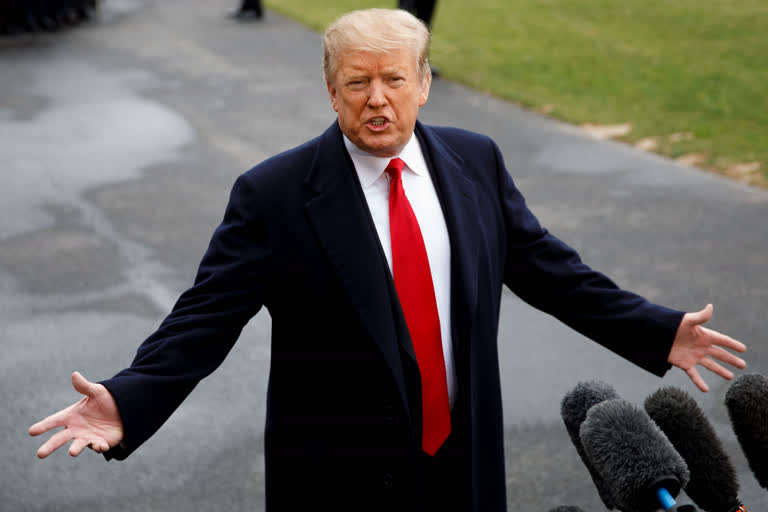Washington: Escalating the bruising trade war with China, President Donald Trump has signed an executive order barring American companies from installing the foreign-made telecom equipment deemed a national security threat, a move apparently aimed at banning Chinese giant Huawei from US networks.
The decision taken on Wednesday risks escalating tensions with China as the world's two largest economies clash over whether Huawei — the world's largest provider of telecommunications equipment — poses a spying risk to Western infrastructure networks.
Under the order that will take effect in the coming days, Huawei will need a US government license to buy American technology.
Soon after the executive order - "Securing the Information and Communications Technology and Services Supply Chain" - was signed, the Bureau of Industry and Security (BIS) of the Department of Commerce announced that it will be adding Huawei Technologies Co. Ltd and its affiliates to its Entity List.
The Department of Commerce alleged that Huawei was engaged in activities that are contrary to US national security or foreign policy interest. As a result, sale or transfer of American technology to a company or person on the Entity List requires a license issued by the BIS, and a license may be denied if the sale or transfer would harm US national security or foreign policy interests.
The listing will be effective when published in the Federal Register.
"This action by the Commerce Department's Bureau of Industry and Security, with the support of the President of the United States, places Huawei, a Chinese-owned company that is the largest telecommunications equipment producer in the world, on the Entity List," Commerce Secretary Wilbur Ross said.
This will prevent American technology from being used by foreign-owned entities in ways that potentially undermine US national security or foreign policy interests, Ross said, adding that it has been done at the direction of the president.
In the order, Trump determined that the unrestricted acquisition or use in the US of information and communications technology or services that are subject to the jurisdiction or direction of foreign adversaries augments the ability of those foreign adversaries to create and exploit vulnerabilities in information and communications technology or services and that can have potentially catastrophic effects, and thereby, constitutes an unusual and extraordinary risk to US national security, foreign policy and economy.
Read more:New payment mechanism can help tide over US constraints: Former Ambassador
Trump "is incredibly" committed to preventing adversaries from turning American information and communications infrastructure into a liability as opposed to an asset, a senior administration official said.
